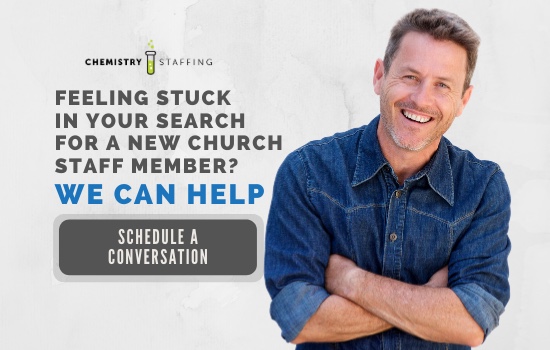What has happened to our nation and culture? Most, if not all, of us asked this question as we saw our nation’s capital overtaken by rioters this week.
We are so angry and divided as a nation, as a people, and even as a church. It has become almost impossible for pastors to lead with any sense of unity. In fact, as the events of this week have shown, it’s almost impossible for anyone in any area of discipline.
So what does a church have to do to successfully operate in our divisive culture?
Recently, my friend Todd Rhoades of Chemistry Staffing dealt with this incredibly important issue in a very informative blog post. I want to share his comments with you.
If you are not familiar with Todd Rhoades and Matt Steen of Chemistry Staffing, you should be. They are two of my most trusted voices. Few people are better equipped to help churches with hiring, transition, and developmental items than these two men. These are dear friends who love Jesus and serve pastors, churches, and their staffs with complete excellence.
If you are looking for Godly, competent new additions to your team or perhaps looking for your next position, click HERE or on the image provided. Start a conversation with them and say, “Brian sent me.” They will treat you well. Now onto Todd’s thoughts:
Particularly in the church?
Recently in one of our Life Group coaching meetings at my church, we were discussing how polarizing our culture has gotten. Especially recently.
One person commented that people are generally disagreeable. Another said that we don’t know how to have discussions with people that see things even a little differently than we do. Yet another mentioned that today it is much more difficult to get along and have rational conversations with people, even people they’ve known for years.
My gut response: culture is just catching up to the church.
For hundreds of years (ok thousands of years), the church has been overly disagreeable. We don’t like to have discussions with anyone that thinks even slightly differently than we do. In fact, many times, we are unwilling to even have rational conversations with those people.
That’s why there’s a different church on every corner in your town.
That’s why there are well over 200 denominations in the United States, and why 59% of churches in America are under 100 people.
That’s why people church hop. If we don’t like something, we leave.
That’s why church staff move from church to church to church over their careers. It’s hard to keep imperfect people (or people that we disagree with on anything) on our payroll.
That’s why there is conflict in our boardrooms and in our staff meetings.
And why people, who see a rag-tag group of leaders that are more interested in cloning themselves than achieving the mission, eventually leave the church for good.
But there is good news.
I see more and more churches engaging and breaking down barriers.
More and more churches are starting to communicate better and initiate conversations that, until this point, have not been commonplace in the church.
Increasingly, churches are seeing that by identifying their unique DNA and mission, it actually broadens their ability to minister in their communities, keep the peace inside their walls, and keep their battles to the truly significant matters of the Gospel.
It helps them hire better and manage relationship issues with their current staff better.
As a church, there are some things that you need to fight for (the Gospel, specifically).
Most other things should be worked through rationally and maturely.
That’s no small feat.
But more and more churches are finding out that their future depends on it. Literally.
As today’s culture gets more and more divisive, the church has to double-down on offering hope, peace, and future.
Seems to me, that should be right in our wheelhouse.
What can YOU do this week to help make this a reality in your church and community?

